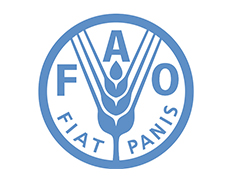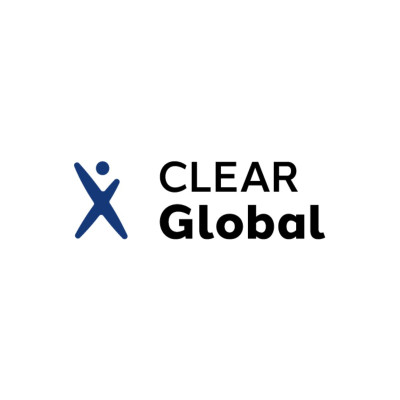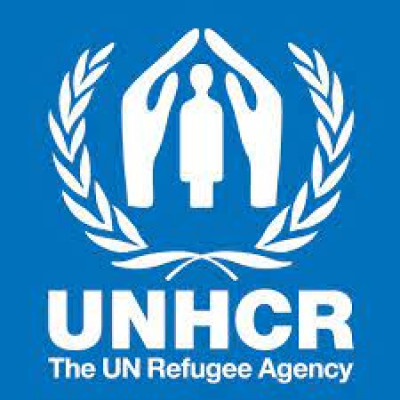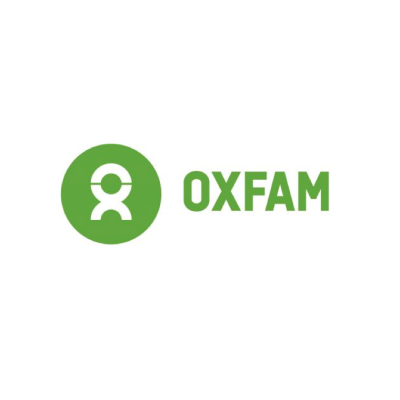Details
Description
Background
UN Women, grounded in the vision of equality enshrined in the Charter of the United Nations, works for the elimination of discrimination against women and girls; the empowerment of women; the achievement of equality between women and men as partners and beneficiaries of development; human rights; as well as humanitarian action and peace and security. Placing women's rights at the centre of all its efforts, UN Women leads and coordinates United Nations system efforts to ensure that commitments on gender equality and gender mainstreaming translate into action throughout the world. It provides strong and coherent leadership in support of Member States' priorities and efforts, building effective partnerships with civil society and other relevant actors.
The COVID-19 pandemic is one of the challenging contexts we have faced in our lifetime, a human crisis with severe health and socio-economic consequences. As the virus is unprecedented in our lifetime, it requires an unprecedented response. As in previous crises, women and girls are being disproportionately negatively affected. The United Nations (UN) Secretary-General issued an urgent call to action. in his Policy Brief: The impact of COVID-19 on Women and raised the alarm that the pandemic is having far-reaching socio-economic implications on women and girls and is exacerbating pre-existing inequalities and discrimination against women.
As one of the hardest hit countries in the region, the outbreak of the COVID-19 pandemic in Armenia has aggravated the already weak health, social and economic systems and disproportionately impacting women and girls, particularly in vulnerable situations, such as minority, migrant and rural women, younger and older women, women with disabilities, survivors of gender-based violence (GBV) and female single-headed households, limiting their freedoms and curtailing access to services and economy. The pandemic risks exacerbating and deepening pre-existing inequalities in Armenia’s labour market, including women unemployment and their labour rights, unevenly distributed care work, as well as gender pay gaps. Recent reports, including the Socio-economic Impact Assessment (SEIA) of the COVID-19 Outbreak in Armenian Communities as well as the Rapid Gender Assessment on the Impact of COVID-19 on Women’s and Men’s Lives and Livelihoods in Europe and Central Asia highlight the ways in which women are being disproportionately affected by the pandemic as a result of structural inequalities.
For women entrepreneurs in Armenia, deeply-rooted structural gender inequalities in Armenia, have resulted in unequal access to infrastructure, productive resources and procurement opportunities. Discriminatory property and inheritance norms are also inhibiting women’s access to credit and financial products and services. Whilst norms are shifting due to the market economy, the rate of change is still slower than that of laws as families are still favouring male siblings. The finance gap among micro, small and medium enterprises (MSMEs) reflects this phenomenon; despite their smaller average size, women-owned businesses account for a disproportionate share of the finance gap. Women entrepreneurs are also disproportionately represented at the micro, small and medium level, and women-owned businesses tend to be concentrated in sectors with lower profit margins than men. Against the backdrop of these pre-pandemic inequalities, the recent Socio-Economic Impact Assessment for Armenia has highlighted that as a result of the COVID-19 crisis, Small and Medium-Sized Enterprises (SMEs) in Armenia experienced immediate strong shocks, with women-led SMEs hit hardest. The SEIA revealed that almost half of the registered SMEs in Armenia were working in sectors hit harder by the crisis. Interestingly enough, the majority of women-led SMEs were operating in the very sectors impacted by the lockdown restrictions. Whilst Government support measures are targeting hard-hit SMEs, particularly in the tourism and service sectors, many individual entrepreneurs, micro- and unregistered SMEs, often led by women, have been left out.
Also, women’s underrepresentation in science, technology, engineering and mathematics (STEM) in Armenia will place them at a disadvantage in accessing and participating in sectors critical for economic response and recovery. With an increased number of workers and businesses now conducting their work and business virtually, the COVID-19 pandemic has underlined the importance of digital economies, suggesting that STEM skills are going to be one of the most-in-demand both in education and labor market. Currently, women comprise 39.8% of graduates from STEM-related tertiary level programs according to UN Economic Commission for Europe. A 2017 study on women in STEM careers by the World Bank found that societal beliefs about gender norms, particularly in rural areas, have limited women’s education and career choices.
Women’s economic empowerment has the potential of reducing GBV by increasing women’s bargaining powers within the households and giving them livelihoods and the security to leave abusive family environments. However, an underlying risk remains. Whilst shifting power dynamics in the household due to a women's economic empowerment may strengthen her position in the household, this may in some situations lead to a male partner trying to reassert control, thus increasing the risk of violence. To mitigate this risk, women and adolescent girls at risk and survivors of violence can benefit from safe access to evidence-based information and protection support adapted to the COVID-19 context.
Given the disproportionate adverse impacts that the crisis has on women and girls’ economic opportunities and empowerment, and a risk of increased and intensified violence against women and girls, including domestic violence, UN Women are implementing a joint UN project in Armenia with UNDP, UNIDO and UNICEF. Funded by the UN COVID-19 Response and Recovery Multi-Partner Trust Fund (UN COVID-19 MPTF), the “Accelerating women’s empowerment for economic resilience and renewal: the post COVID-19 reboot in Armenia” project is being implemented to advance the priorities set out under the United Nations in Armenia’s COVID-19 Socio-economic Response and Recovery Plan Socio Economic Response Plan for Armenia (SERRP).
UN Women is currently a non-resident agency in Armenia. Programme and partnership support under this project are led by the UN Women Regional Office for Europe and Central Asia (ECARO) in Istanbul.
Reflective of the above, the UN Women is seeking to recruit a specialist to deliver tasks as outlined below. The Consultant will work closely with relevant colleagues at ECARO, and with project colleagues from UNDP, UNIDO and UNICEF Offices in Armenia.
Duties and Responsibilities
GOAL AND OBJECTIVES
The main objective of this consultancy is to provide gender expertise in developing a package of innovative online training modules and toolkits on ‘Being Gender Aware’ for women and young girls. The package will supplement trainings being delivered by UNDP, UNIDO and UNICEF on digital and STEM skills and entrepreneurship development. The innovative e-modules will include and not be limited to: (i) creating gender awareness by making women and young girls more gender aware of their rights in private and public spheres; (ii) creating greater economic security and empowerment for women and young girls; and (iii) reducing the threat of psychological and gender-based violence including from COVID-19’s movement restrictions, the loss of income, and self-isolation.
SCOPE OF WORK AND SPECIFIC TASKS
Under the overall supervision of the Regional Peace, Security and Humanitarian Specialist (ECARO) and in close coordination with Project Coordinator for gender-responsive socio-economic COVID-19 response and recovery in Armenia (ECARO), the Consultant is expected to perform the following tasks:
Training modules and toolkit documents review
Conduct a desk review of available training courses and learning material published by UN Women and key development partners on gender equality with focus on: gender specific challenges and gender dimensions of women and girls in digital and STEM fields and in business, including as entrepreneurs; making women and young girls more gender aware of their rights in private and public spheres; creating greater economic security and empowerment for women and young girls; and reducing the threat of psychological and gender-based violence, including during COVID-19 and in emergencies
Mapping of training manuals and tools
Mapping of local trainings institutions/organizations to consider a further institutionalization of the training courses and its integration into its/their curriculum
Develop an inception report based on the above desk review to plan for and conduct the trainings
Develop the training plan
Undertake capacity needs assessment (online survey) to identify key gaps and challenges and define training priorities
Facilitate a consultation with a select number of women and young girls and key partners to identify main elements of the training package
Develop the training plan with learning objectives, module topics, training material, training methodology, pre- and post- training assessments, etc., including drawing on existing trainings available from UN Women
Facilitate a session with UN partners implementing the project to review the training plan and online training package
Develop the training e-modules and toolkits
Develop a standardized training e-package (manual, toolkit, checklists, etc.) on ‘Being Gender Aware’ for women and young girls that can be used across the region
Support UN Women ECARO in working with designers and translators of the training package
Conduct the online trainings
Support the organization of online training workshops with project beneficiaries in collaboration with UNDP, UNICO and UNICEF
Conduct the e-trainings including pre-and post- training assessments
Prepare an end of training report
DELIVERABLES AND TIMELINE
The Consultant will set out a bi-weekly plan of proposed activities in line with the below deliverables.
Deliverables
Target date
Amount of payment
Work plan with list of monthly deliverables to be updated at the beginning of each month and cleared by Supervisor
By 5th of each month
N/A
Summary report of tasks performed under expected duties and responsibilities, deliverable documents and timesheet.
On a monthly basis, by 25th of every month
Monthly lumpsum
Final consolidated report with indication of key achievements and handover notes
By 20 December 2021
Final month’s lumpsum
Competencies
Core Values:
Respect for Diversity
Integrity
Professionalism
Core Competencies:
Awareness and Sensitivity Regarding Gender Issues
Accountability
Creative Problem Solving
Effective Communication
Inclusive Collaboration
Stakeholder Engagement
Leading by Example
Functional Competencies:
In-depth knowledge of gender equality, women’s economic empowerment, violence against women and girls, and humanitarian action
Demonstrated ability to produce trainings plans and training materials on gender equality, women’s economic empowerment and violence against women and girls
Demonstrated ability to effectively carry out trainings online and in-person
Demonstrated ability to produce clear reports and guidance with in-depth analysis and strategic recommendations in English in the relevant field
Good communication and interpersonal skills, ability to foster networks and partnerships
Ability to complete complex assignments in a timely manner and delivery quality results
Required Skills and Experience
Education and certification:
Master’s degree or equivalent in gender studies, social sciences, economics, or any other area relevant to the requirements of the Terms of Reference.
A first-level university degree in combination with two additional years of qualifying experience may be accepted in lieu of the advanced university degree.
Experience:
At least 7 years progressively responsible experience in gender, women´s rights, women´s economic empowerment, violence against women and girls, and humanitarian action (socio-economic response, recovery) or related area of work
Demonstrable experience in developing high quality training manuals on gender equality, women´s economic empowerment and/or violence against women and girls
Experience in programming on initiatives that address the issues affecting women and girls in development and humanitarian settings
Experience of research on gender equality and women’s empowerment and producing high quality research documents and reports
Experience working with the UN is an asset
Language Requirements:
Fluency in spoken and written English is required.





